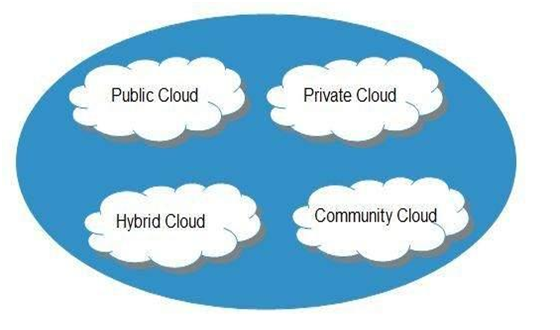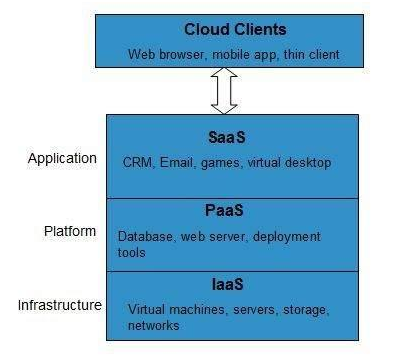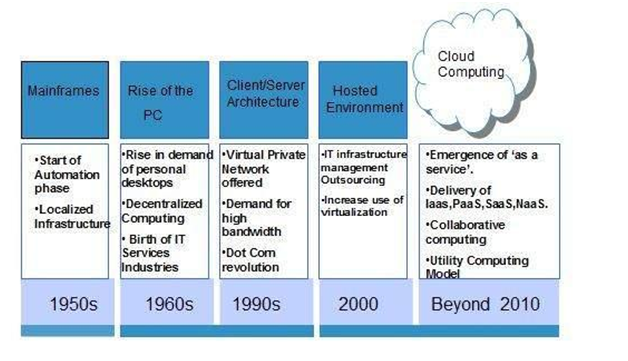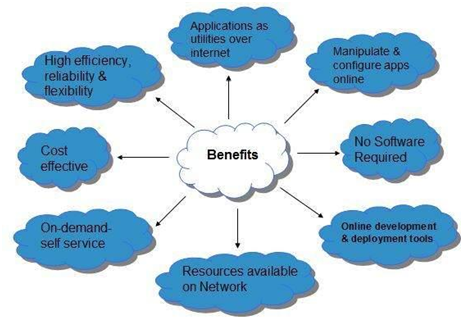In this article, we will discuss the concept of Cloud Computing and its essential terms associated with the bank exams.
The term Cloud computing is used to describe the data centres available for users over the Internet where they can save their databases and files. This data can easily be accessed over the internet anytime and anywhere.
Since the Computer section in major Bank exams has been combined with the Reasoning Ability section of the Mains phase of the exam. 7-10 questions are expected to be asked in this section and questions from Cloud computing may also be included in this.
| Strengthen your preparation for the Computer Awareness section for the upcoming SBI & IBPS Exams with the help of links given below: |
Every year in India, bank exams are conducted mainly for the recruitment of various managerial and clerical positions in the banking sector. Some of these upcoming bank exams in India include:
To know the list of upcoming bank exams, click at the linked article.
In this article, we’ll focus on the importance of cloud computing for IBPS SO and SBI SO exams.
Apart from cloud computing, there are various other important topics which need to be prepared for the Computer Awareness section. The table given below mentions a few of such topics:
| Related Links | |
| Computer Shortcut Keys | Computer Abbreviations and Acronyms |
| Computer Networks | High Level Computer Languages |
| Bank Exam Preparation | Bank PO Study Material |
What is Cloud Computing?
In cloud computing, we can manipulate, configure and access the hardware and software remotely. In general, cloud computing is accessing and storing the files and databases over the internet instead of accessing it on your computer’s hard drive.
Cloud computing offers platform independence, the software is not required to be installed on any PC. There is portability in cloud computing.
Applications that execute on a cloud are over email or through web conferencing.
Click here to know more about SBI Recruitment.
Prerequisites
To learn cloud computing, one should have basic knowledge of computer, Database Management System (DBMS) and Networking. These subjects will help you to understand the concepts of cloud computing very easily.
Basic Concepts of Cloud Computing
To make cloud computing feasible and accessible to the end users, there are certain services and models:
- Deployment Models
- Service Models
1. Deployment Models

There are four types of access in the cloud:
- Public
- Private
- Hybrid
- Community
- Public Cloud
Public cloud is easily accessible to the general public. A private cloud is operated by the organisation it serves. Public cloud is inexpensive. There are no wasted resources because you pay for what you use.
- Private Cloud
Private cloud only allows systems and services to be within an organisation. Private cloud is the best for business with dynamic or unpredictable computing needs because they will have control over the environment of the cloud.
- Hybrid Cloud
Hybrid Cloud is a cloud service which includes both private and public clouds. Hybrid cloud is best for heavy workload because it combines both public cloud and private cloud.
- Community Cloud
In the Community cloud, the resources are shared between several organisations. It allows several companies to work together on the same platform, where they can share their resources.
2. Service Models
There are three service models:
- Infrastructure-as-a-Service (IaaS) – Here users are responsible for managing data, applications and runtime. In IaaS, providers manage virtualisation, servers, hard drives, storage, and networking.
Example: (AWS) Amazon Web Services, Microsoft Azure.
- Platform-as-a-service (PaaS) – PaaS is used for development. With PaaS, one can develop and customise applications. PaaS makes it easy to for development, testing, and deployment of applications.
Example: Apparenda
- Software-as-a-service (SaaS) – As it is a service based cloud, the cloud provider delivers a complete software to the client. It provides pre-configured hardware resources through a virtual interface. It does not include any Operating System. It allows access to the software only.
Example: Google Apps, Salesforce, Workday.
To know more about SBI Syllabus, click at the linked article.

Candidates willing to ace the upcoming Bank exams must focus on solving more and more sample questions as this will help them analyse their preparation and know which sections of the exam syllabus require more hard work and efficiency. To get free online test series for IBPS, SBI and other Bank exams, refer to the links given below:
| Free Online Mock Test Series with Solutions | Previous Year Government Exam Question Papers PDF |
| Bank PO Question Papers with Solutions | Free Online Bank Exam Quiz |
History of Cloud Computing
The evolution of cloud computing started in 1950 with mainframe computing. Here multiple users are allowed to access a mainframe.
After 20 years around 1970, the concept of virtualisation came. Virtualisation software made it possible to execute one or more operating systems simultaneously in an isolated environment.

To know more about different SBI Exams Notification, click at the linked article.
Candidates can also check the detailed bank exam syllabus for the various banking sector exams in which Computer Knowledge is a part of the Prelims or Mains syllabus in the articles given below:
| SBI PO Syllabus | IBPS PO Syllabus |
| RBI Assistant Syllabus | RBI Grade B Syllabus |
| IBPS Clerk Syllabus | SBI Clerk Syllabus |
Benefits of Cloud Computing
- Applications and utilities can be accessed over the internet.
- Applications can be modified and manipulated via the internet at any instance of time
- To access, manipulate and modify, you don’t have to download or install any software.
- Cloud is platform independent, as it is available over the internet, one can access it anytime, whenever they want.
- It is more reliable because cloud computing offers load balancing.

Risks related to Cloud Computing

In some cloud’s data management and infrastructure management is provided only by the third party, so it’s very risky to handover any valuable information to the service providers.
It becomes challenging to switch from one cloud service provider to another.
Sometimes data deletion request is made and it may not get deleted, as backup files are not available at the time of deletion.

Questions based on the basic concept of cloud computing its components and it benefits may be asked in the bank exams. Candidates must, therefore, go through the article above carefully and understand what is cloud computing and prepare it for the upcoming bank exams.
Apart from bank exams, there are various other competitive exams where cloud computing and Computer Awareness may be a part of the syllabus. To excel in other such Government exams, candidates can check the Preparation Strategy for Competitive Exams at the linked article.
For more information regarding computer and bank exam syllabus, stay tuned to BYJU’S. It is imperative for candidates to have a better understanding of how to make strategies for their bank exam preparation to excel in their respective exam.
Frequently Asked Questions on Basics of Cloud Computing
Q 1. What is Cloud Computing?
Q 2. What are the characteristics of Cloud Computing?
Ans. Characteristics of Cloud Computing:
- Easily accessible
- Minimum charges
- On-Demand Network
- Resource Pooling
- Adequate Storage
Q 3. What are the examples of cloud computing?
Ans. Given below are a few examples of cloud computing:
- Google Cloud
- Adobe Creative Cloud
- Creatio
- Salesforce
- Microsoft 365
- Microsoft Power BI
Comments